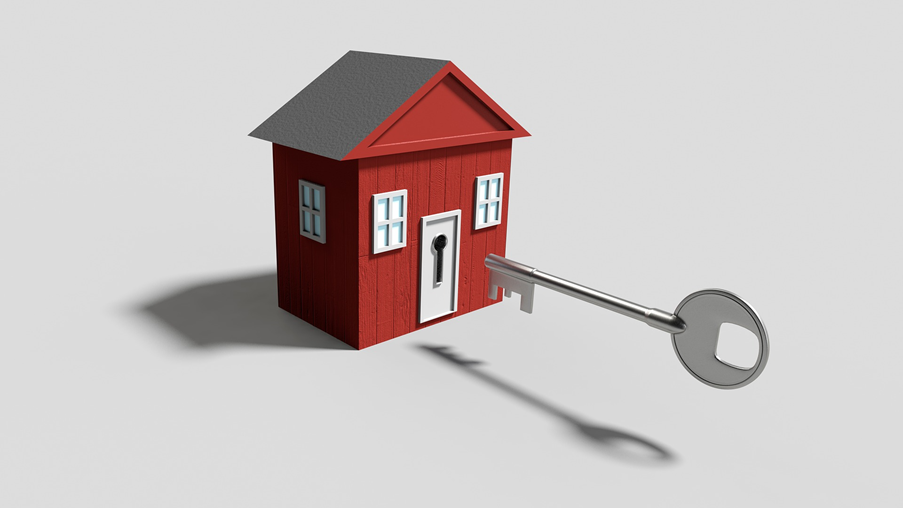
When the global pandemic affected the world, it changed everything. It created a difficult situation throughout the world, and people suffered greatly when it came to finances.
Many individuals could not even make enough to pay off their mortgages. To help people with this situation and prevent them from losing their homes, the COVID-19 mortgage relief was introduced, or we can call it the concept of ‘Forbearance’.
You wouldn’t have typed ‘Can I sell my house while in forbearance?’ in your search bar if it wasn’t a burning question in your mind. In this article, we will uncover all that you need to know about forbearance and how covid has shifted the process to request it. Read on to learn what the current forbearance rate is, does forbearance affect credit score, and the pros and cons of mortgage forbearance.
What is Forbearance?
A forbearance is a contract or commitment between you and your mortgage servicer which allows you to pause or reduce your mortgage for a certain amount of time till you achieve financial stability again. It certainly does not mean that you won’t have to pay the mortgage, you just get some time till you can start paying it again.
How To Request a Forbearance?
During the pandemic, the government passed a CARES Act that made it a hundred times easier to request forbearance. Suppose you have HUD/FHA, VA, Fannie Mae, Freddie Mae, or USDA backing up your mortgage.
In that case, all you need to do is explain that you have faced a pandemic-related hardship to meet the eligibility criteria for the relief. If you are unaware of how your mortgage is backed up, ask your servicer about it.
On the contrary, if you were already on a forbearance plan before COVID-19 but need an extension due to the pandemic, you can request an additional 180 days under the domain of COVID-19 hardship. However, you must know who is backing up your mortgage.

Selling a Home In Forbearance
The most common concern of the homeowners while in forbearance is if they could sell their house during the period of forbearance. Well, if you are one of these homeowners, we have good news for you, there are no such rules of not being allowed to sell your home while in forbearance. It is your home, and you can sell it anytime.
However, you would still need to clear your payments with the servicer, which should not be a problem anymore. You can sell your home for some quick cash, and with the money you get, you can clear your debt of the forbearance.
Pro-tip! If you want to receive the best offers for your house, try selling the house to an investor.
Forbearance Rates
Forbearance rates are set by the Mortgage Banking Association (MBA). These rates keep on shifting every now and then depending on the number of loans in forbearance. The most recent drop in the rates was witnessed in January when it dropped to 1.30% from 1.41%.
What Happens to Escrow During Forbearance?
While in the forbearance period, the principal and interest payments are postponed, and no extra fees, penalties, or interest beyond the regularly scheduled amounts will be charged by the servicer.
However, it is still unclear in the CARES Act what will happen to the payments made by homeowners to pay property taxes and homeowners’ insurance if they have an escrow account.
The initial draft of the act required the servicer to pay the funds of the escrow items at fixed time intervals during the period of forbearance. However, this clause was not addressed in the final document. The final version suggests that the Real Estate Settlement Procedures Act (RESPA) will be responsible for explaining the handling of escrow.
You’ll eventually have to repay deferred escrow amounts and the principal and interest you skipped during the forbearance.
Sell Your Home In Any Condition
There are no realtors, commissions, fees, and no obligation whatsoever. Start below by giving us a bit of information about your property.
Let’s look at the Mortgage Forbearance Pros and Cons
If you wonder if mortgage forbearance is the right way for you, you can decide easily by weighing its pros and cons.
You can view what advantages and disadvantages it brings to the table, and then you can decide if the advantages are worth ignoring the disadvantages.
Pros of Mortgage Forbearance
- Allows you to avoid foreclosure and stay in your home.
- Provides time to address a short-term financial hardship.
- Less of a negative impact on your credit than foreclosure or a record of multiple late payments.
- During the forbearance period, servicers aren’t allowed to charge fees or interest beyond what you would have had to pay if you were making the regular monthly payments. So, you won’t be surprised by any late fees, and you won’t see any impact on your credit score.
- You can explore your options of selling your home during forbearance.
Cons of Mortgage Forbearance
- The unpaid payments will continue to accrue during the forbearance period and must be paid back.
- You may have a higher mortgage payment after the forbearance.
- Will not help you if you are having trouble paying your mortgage in general.
- In the past, individuals who have entered government-established mortgage relief programs have sometimes been negatively impacted by credit and their ability to purchase or refinance new mortgages for some time.
- You will be burdened to pay a heavy amount once your forbearance ends.
3 Ways to Refinance After COVID Forbearance
Before the COVID-19 Mortgage relief program was launched, you must have to wait at least 12 months after your payments were current again to be eligible to apply for forbearance refinancing. However, the pandemic has changed this criterion, allowing particular homeowners to refinance sooner.
If you have a loan backed by Fannie Mae or Freddie Mac, or by the FHA, USDA, or VA, you are in luck, keep the following information in mind when thinking about refinancing;
1. Fannie Mae or Freddie Mac
To be eligible to refinance with these, you will have to make three payments under the loan modification or a repayment plan. After that, you can refinance the complete loan amount with the missed payments into a fresh loan.
2. FHA
To apply for refinancing with FHA backing up your mortgage, you will have to quit the forbearance first. However, the requirements may vary depending on your loan program or the investor that supports that loan.
3. USDA or VA
If USDA or VA are the agencies backing up your mortgage, you need to ask your mortgage provider to provide you with insights on your available options. Or, you can check it out online at Mortgage Electronic Registration Systems.
Options For You During or After Forbearance Ends
While refinancing is a good option, it is not the only one. In fact, with refinancing, you will be trapped in a cycle and have to keep doing it until you can afford to pay off your loan. Here we have some options you can explore during or at the end of the forbearance;
1. Get Back To The Original Rate
If you think you will be able to pick up where you left the mortgage payments before you started your forbearance, we will suggest going back to making the payments in full. You can clear the payments you have missed during the forbearance and can get back to normal.
2. Ask for a Forbearance Extension
If you are still struggling with financial troubles and can’t afford to pay your mortgage anytime soon, you can ask for an extension in your forbearance. You can apply for this extension under COVID-19 hardship and avail yourself of three-to-six months.
3. Apply for Loan Modification
In some cases, loan servicers can help in-need borrowers by lowering their mortgage interest rate or extending their loan terms to make payments more affordable. Unlike a refinance, loan modification does not involve closing costs. It’s meant to be a last-resort form of mortgage relief
4. Sell The Home And Pay Off The Loan
Perhaps months of quarantine and work-from-home have you thinking about relocating to a city with a lower cost of living. Selling the home to pay off your mortgage can free up cash for a move and allow home buyers to purchase a less expensive property at a lower interest rate.
However, if you opt for this option, make sure to weigh how much you owe in forbearance and if the money you will get from selling the house is more than that or not. Also, here’s a suggestion, whenever you make a deal and sell your home, accept only a cash offer because it’s the most reliable payment method.
The Bottom Line
Wrapping it up, we would like to add that selling a house during a forbearance is absolutely permitted, and there are no restrictions if you are willing to clear the forbearance payments.
It could even be the right step for you in terms of your finances or in change. You can explore your options that are less expensive so that you might not even have to apply for forbearance again.
While you are looking for the right offer to sell your house, give us an opportunity to make one. Contact today, and you will see us making the best offer you could get. We believe in investing in homes, and yours could be our next investment!

